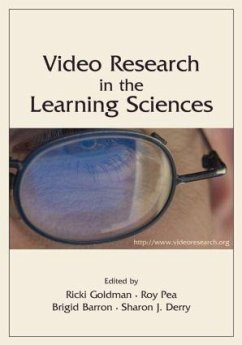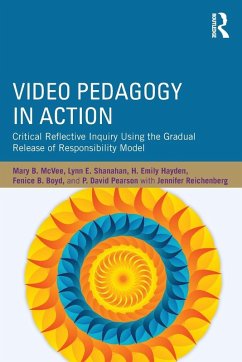
Video in Social Science Research
Functions and Forms
Versandkostenfrei!
Versandfertig in 1-2 Wochen
64,99 €
inkl. MwSt.
Weitere Ausgaben:

PAYBACK Punkte
32 °P sammeln!
In this digital age the use of video in social science research has become commonplace. As sophistication has increased along with usability, as spiralling staff costs push out direct observation, the researchers training today are grasping video as a means of coming to terms with the continued pressure to produce accessible research. However, the 'fit' of technology with research is far from simple. Ideally placed to offer guidance to developing researchers, this new text draws together the theoretical, methodological and practical issues of effectively using video across the social sciences....
In this digital age the use of video in social science research has become commonplace. As sophistication has increased along with usability, as spiralling staff costs push out direct observation, the researchers training today are grasping video as a means of coming to terms with the continued pressure to produce accessible research. However, the 'fit' of technology with research is far from simple. Ideally placed to offer guidance to developing researchers, this new text draws together the theoretical, methodological and practical issues of effectively using video across the social sciences. This book concentrates on how researchers can benefit from the use of video in their own research, whether it is: Video as representation Video as an aid to reflection Video that generates participation Video, voice and articulation, or Video that acts as a provocation. In turn each of these five central functions is discussed in relation to different stages of the research process, consisting of: Research design Fieldwork and data collection Analysis of data and findings Dissemination. As a practical research tool this book shows how, why and when video should be used, representing an invaluable guide for postgraduate and doctoral students conducting research in the social sciences, as well as any researchers, academics or professionals interested in developing technologically informed research.














